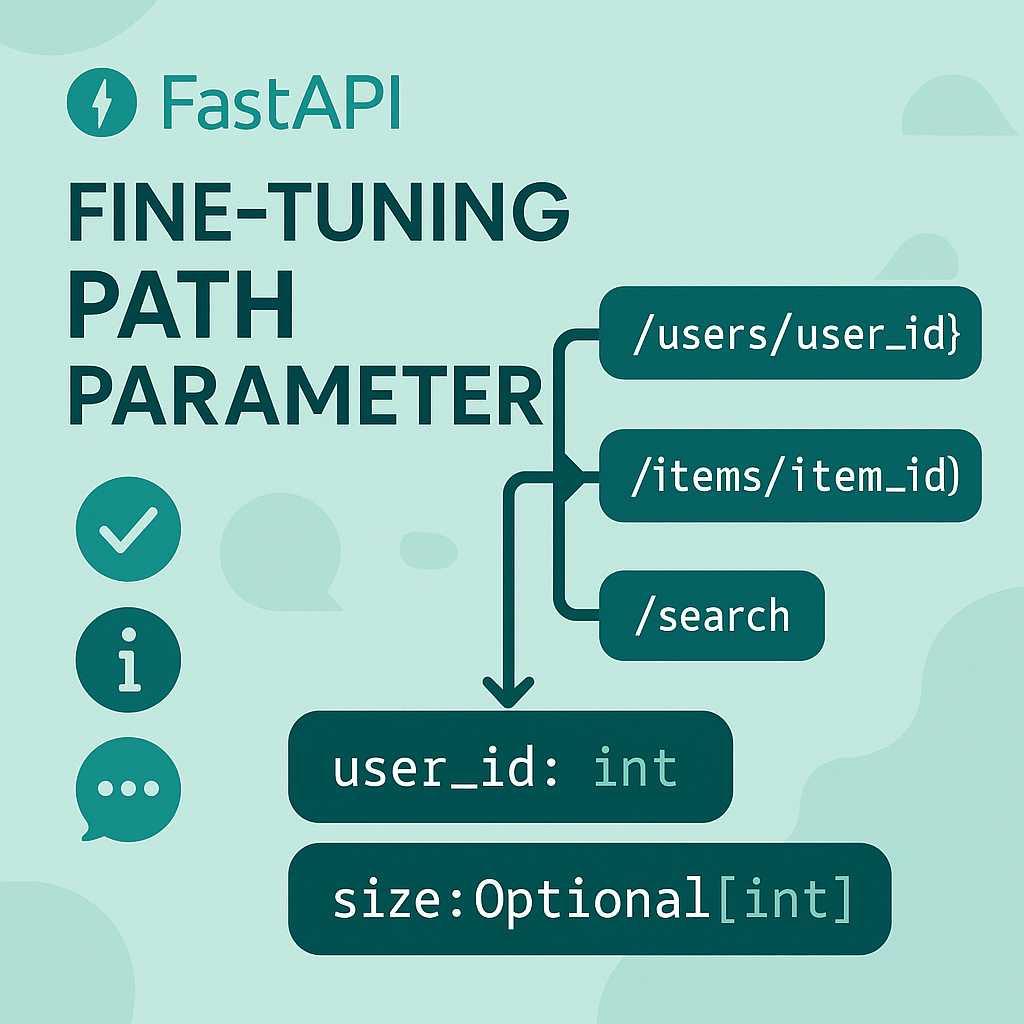As a backend web developer working extensively with FastAPI, one of the nuances I often encounter is handling path parameters with precision. While FastAPI provides intuitive syntax for defining routes, leveraging its advanced parameter options can make your APIs more robust, maintainable, and user-friendly.
In this article, I’ll share practical tips for fine-tuning path parameters to elevate your FastAPI endpoints.
1. Using Path Converters and Type Annotations
FastAPI allows you to strongly type path parameters using Python type hints. This enhances validation and documentation automatically. For example:
from fastapi import FastAPI
app = FastAPI()
@app.get("/items/{item_id}")
def read_item(item_id: int):
return {"item_id": item_id}
If a client sends a non-integer value, FastAPI will respond with a clear 422 error, ensuring your business logic receives properly typed data.
2. Applying Additional Validation with Path()
For greater control, use the Path() function to specify additional constraints like minimum or maximum values, and even regular expressions:
from fastapi import Path
@app.get("/users/{username}")
def get_user(username: str = Path(..., min_length=3, max_length=30, regex="^[a-zA-Z0-9_]+$")):
return {"username": username}
This immediately eliminates a class of invalid input and sharpens your API’s interface.
3. Setting Metadata for Better Documentation
Using parameters like title and description in Path() not only aids OpenAPI doc generation but also clarifies usage for other developers:
@app.get("/order/{order_id}")
def get_order(order_id: int = Path(..., title="Order ID", description="The numeric ID of the order")):
return {"order_id": order_id}
4. Utilizing Enums for Restricted Values
If your path parameter should only accept a specific set of values, use Python Enums:
from enum import Enum
class Status(str, Enum):
pending = "pending"
shipped = "shipped"
delivered = "delivered"
@app.get("/orders/{status}")
def list_orders(status: Status):
return {"status": status}
The resulting documentation will automatically list the allowed values.
5. Path Parameter Ordering and Ambiguity
FastAPI’s route matching is order-sensitive. Place more specific routes above generic ones and avoid ambiguous parameters that may collide, such as:
@app.get("/items/special")
def get_special_item(): ...
@app.get("/items/{item_id}")
def get_item(item_id: str): ...
In summary, thoughtfully crafted path parameters improve validation, documentation, and the overall developer experience. Take advantage of FastAPI’s rich features to make your API endpoints predictable, safe, and self-documenting!
Happy coding!
— Fast Eddy


Leave a Reply